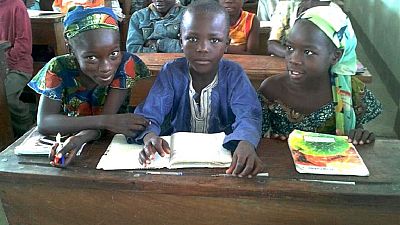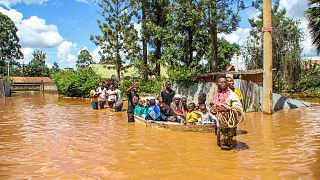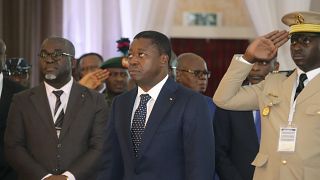Cameroon
In some schools in Cameroon, 12 pupils in grade 2 share 1 reading textbook. This revelation was contained in UNESCO’s Global Education Monitoring Report.
The report which revealed that millions of children do not have access to textbooks also found among others that only 1 mathematics textbook is shared by 14 students in some communities.
Access to learning materials including textbooks is quite limited in public schools especially in rural areas across the continent.
The report indicates in some countries including Kenya, Malawi and Namibia, there was an increase in enrollment putting pressure on the limited textbooks.
The Global Education Monitoring report said centralizing the procurement of textbooks could reduce the price on each textbook to $3 and this can save Sub-Saharan Africa some $1 billion dollars.
Combining this model with the Gavi Vaccine Alliance “could triple the number of textbooks available for children” all over the world.
In Kenya, they estimate that it would save $64 million from textbook bill and Malawi, $33 million.
“Learning materials constitute over a third of total household spending on education in 12 African countries, increasing to over half of spending on education among the poorest households…which is why our paper has investigated the benefits of shifting to a nationally centralized textbook procurement process, which would pool demand for textbooks and ensure long-term and predictable financing.”
The survey was carried out in 11 developing countries including, Tunisia, Brazil, Chile, India, Malaysia, Paraguay,Peru, Phillipines, Sri Lanka, Uruguay, Argentina. “On average, up to a fifth of grade 4 pupils do not have a textbook or have to share one”.
The Global Education Monitoring is mandated to monitor the new goals on global education and compile data on the availability of learning materials in schools.
GEM recommended among other things that countries:
Carry out effective demand forecasting on text books
Increase domestic funds for text books
Channel a larger share of resources for textbooks through one central fund
Report on textbook spending in a transparent way
The report has been released a day ahead of the World Economic Forum, hoping to get world leaders attention to improve the situation.












01:26
Universal social protection needs more financing, says ILO
01:38
Sexual violence in conflict increased by 50% in 2023, says UN
02:18
Plastic pollution: global treaty talks underway in Canadian capital
00:39
Nigerian chess master plays for 60 hours in bid to set new world record
00:42
US vetoes Palestine UN membership resolution
01:30
UN reports widening global inequality in sexual and reproductive health and rights